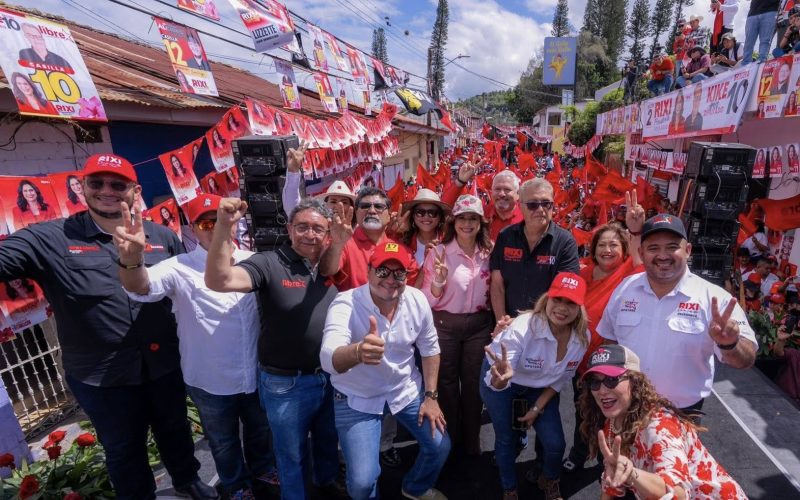The political dynamic in Honduras has reached a critical point just days before the 2025 general elections. The ruling party LIBRE, has deployed a series of actions combining institutional interventions, mass social mobilization, and political pressure strategies, creating uncertainty about the country’s democratic and social stability.
Official involvement and oversight of the voting procedure
In recent weeks, LIBRE has advanced initiatives that numerous analysts and opposition figures deem to be beyond the bounds of the law. These actions encompass the formation of a standing committee within the National Congress, lacking proper regulatory support, and endeavors to remove members of the National Electoral Council (CNE).
According to opposition sources, these actions seek to ensure the ruling party’s influence in the electoral process in the event that its presidential candidate, Rixi Moncada, faces defeat. Constitutional law experts point out that these maneuvers affect the independence of institutions, the transparency of the elections, and the legitimacy of democratic powers.
Social mobilization and preparation for possible confrontations
Starting on November 9, 2025, LIBRE has called for a permanent mobilization involving activists from the country’s 18 departments. Officially, this action seeks to denounce an alleged fraud plan by the traditional parties, including allegations of logistical sabotage and manipulation of the results transmission system (TREP).
Political commentators highlight that this approach fulfills a twofold objective: firstly, to exert pressure on the CNE, the Attorney General’s Office, and the Armed Forces; secondly, to ready for a post-election mobilization should the outcomes not favor the incumbent party, framed as “resistance to electoral fraud.” This situation suggests the potential for unrest, clashes, and orchestrated violence, as noted by both domestic and international observers.
Potential for societal upheaval
The interplay of institutional actions and public activism has fostered an atmosphere of unpredictability, impacting various segments of the populace. Opposition groups are vocal about experiencing harassment, intimidation, and menaces, and the general public expresses apprehension regarding the potential for widespread confrontations and civil disorder.
International experts warn of the emergence of parallel security forces and the potential destabilization of institutional life. They point out that, without control and oversight mechanisms, Honduras could face a crisis that compromises governance, citizen participation, and the stability of institutions.
Safeguarding democracy and advocating for steadiness
Citizens and civil society organizations are demanding guarantees of electoral transparency and institutional autonomy, while the international community is closely monitoring developments. The current situation underscores the need for measures to preserve the independence of state powers and the security of democratic processes, in a context where political polarization and social mobilization are directly linked to the risk of confrontation and disorder.
In this context, the Honduran situation reveals profound conflicts among governance, institutional legitimacy, and citizen participation, presenting immediate obstacles to establishing a trustworthy electoral process and safeguarding societal stability.




